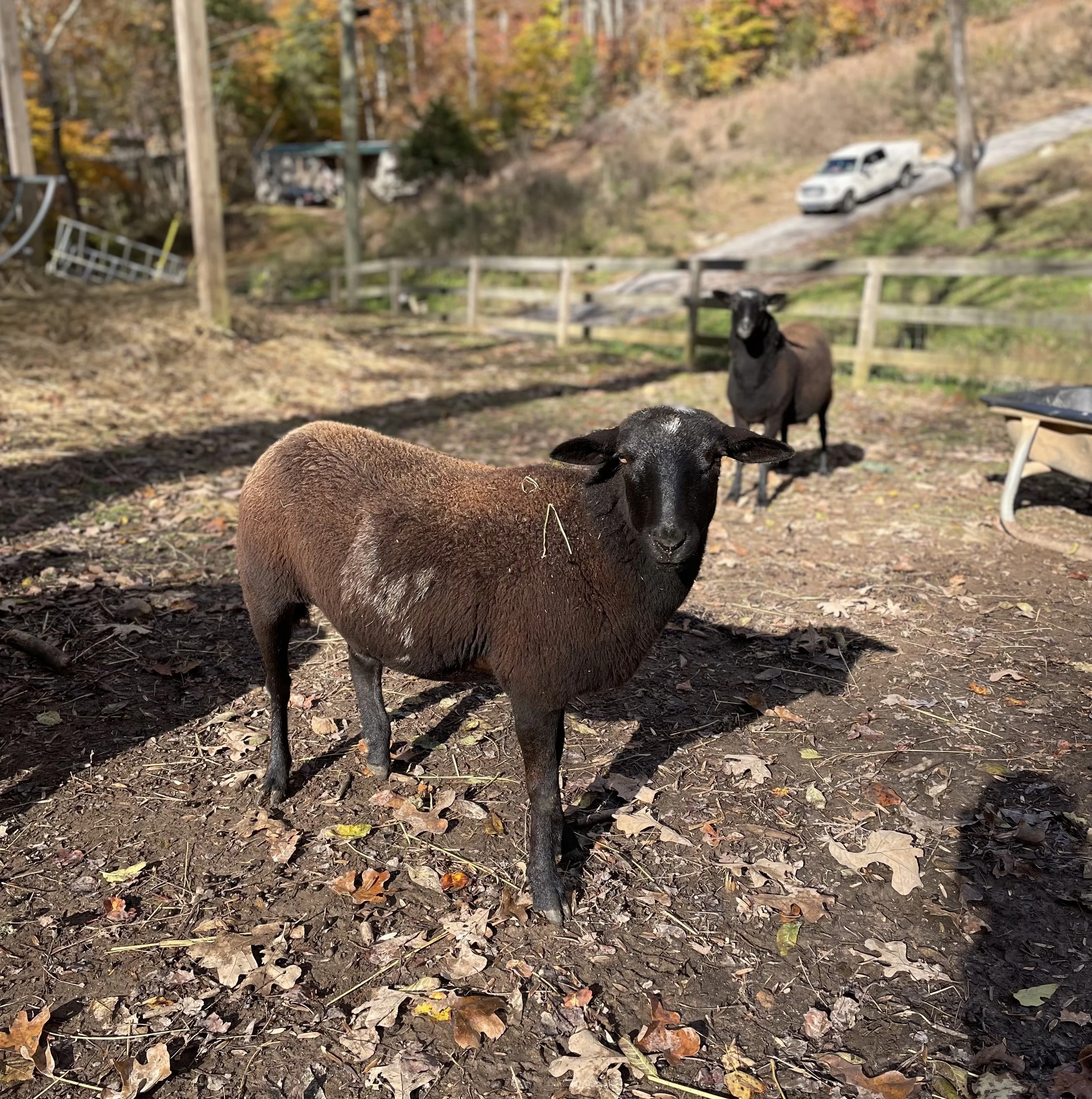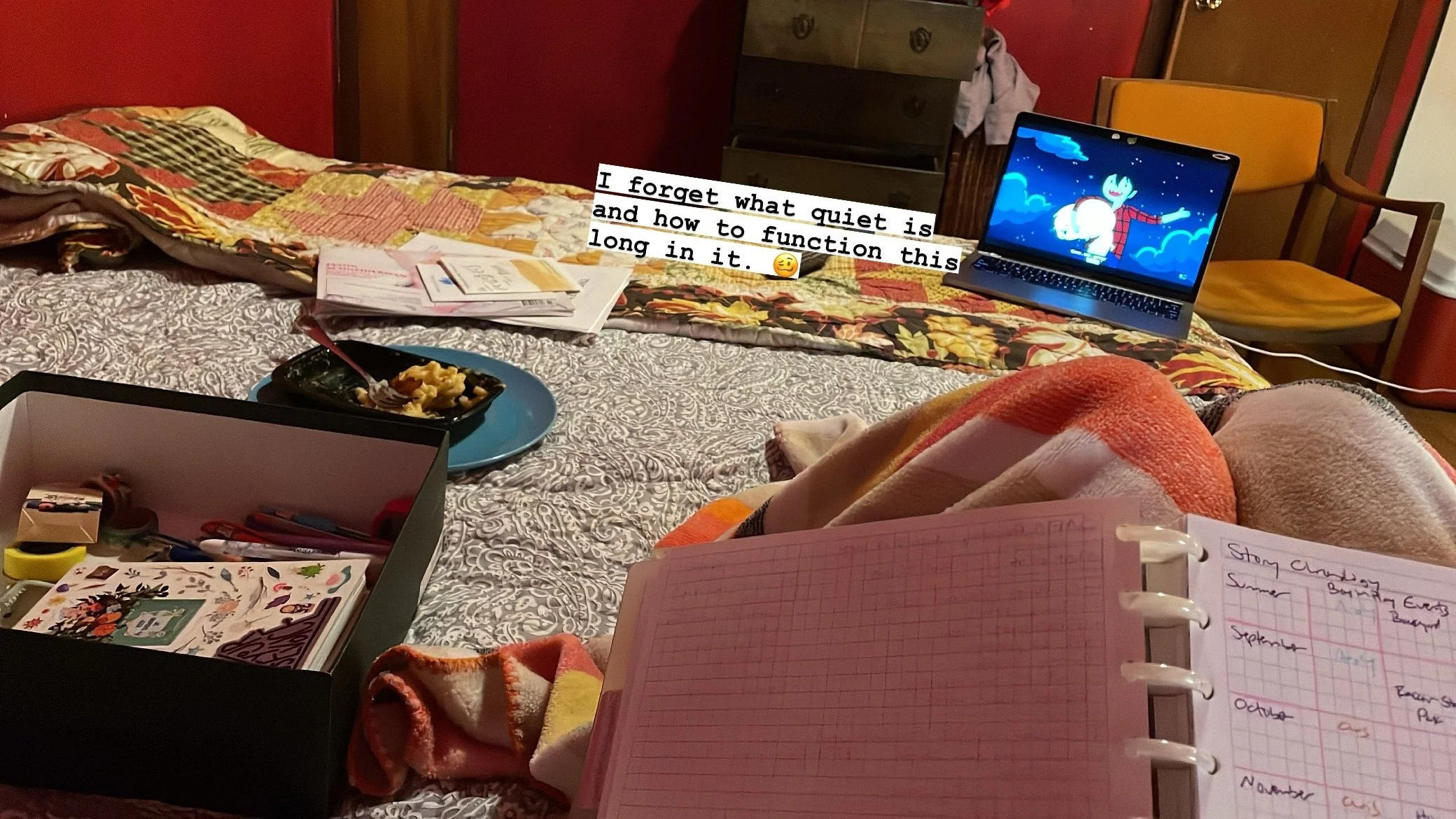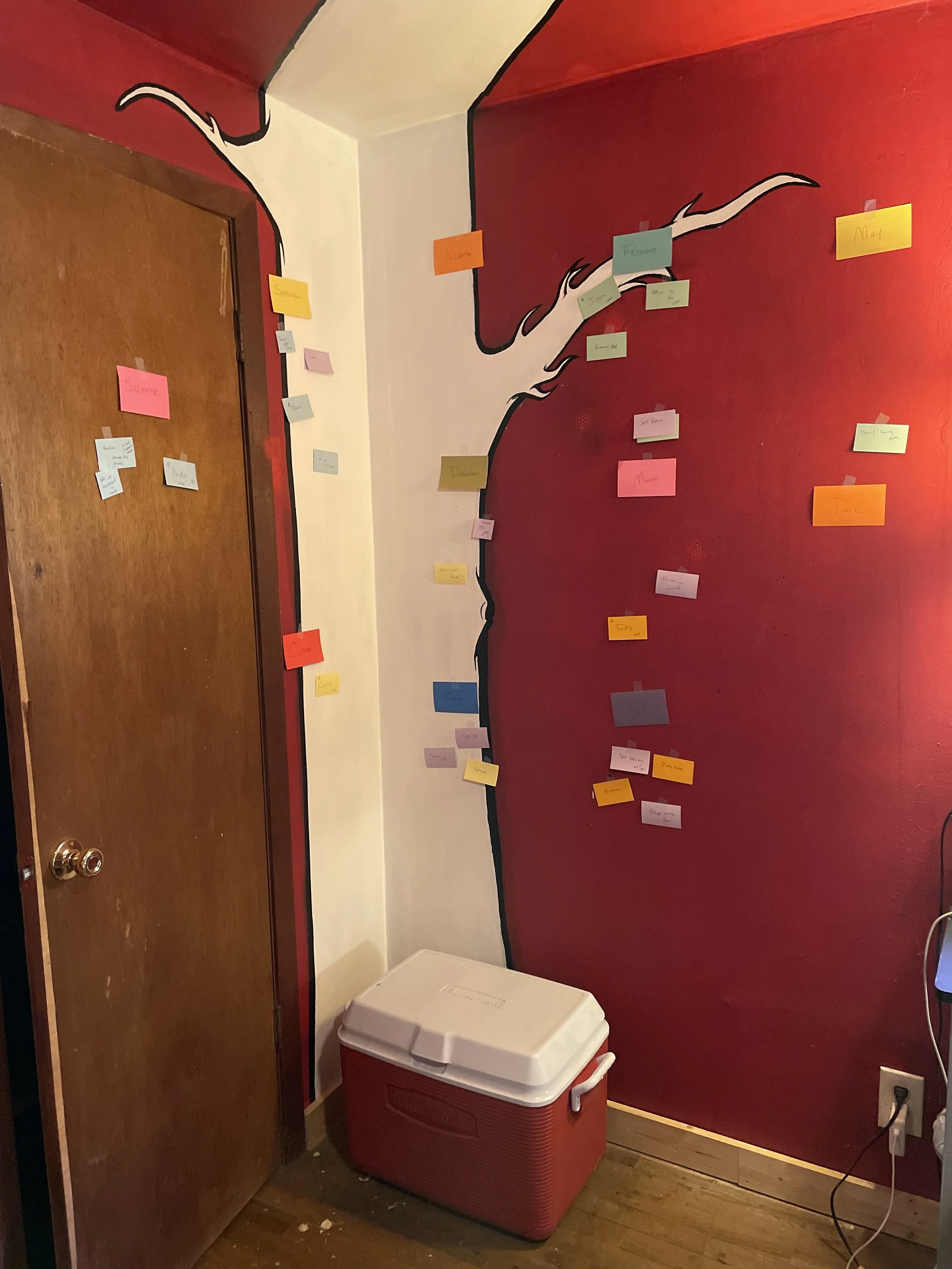On spending a week at a writing residency
It is fair to say I had no idea what I was really getting myself into when I applied for and ultimately accepted a week-long writing residency at the Sundress Academy for the Arts. I knew there were sheep, and I knew I was going to write. I had plans to write solely or at least mostly into a new project, a YA-novel-in-verse based on my own horny senior year of high school.
The sheep at Firefly Farms.
I drove from Pittsburgh to Knoxville—and then back again—for most of the residency’s first and last days. But aside from that, I was fully free to do whatever I wanted to, as long as I fed the animals. I’m used to having responsibilities. Not just work, but feeding children and doing dishes. Also I am used to talking to my family a lot. But a week by yourself is nothing like that. I had easy food to heat and eat so meal-time was not onerous, and I had none of the usual daily markers of my schedule. No school pick-up, no dinner by 6, no shower-read-bedtime routine, no TV-after-kids-go-to-bed with my husband.
A picture of my residency bed, with a showbox of stickers, frozen mac and cheese, piles of papers, “Adventure Time” on my macbook, and my open notebook in my lap.
Turns out it was too quiet. Or lonely? I can’t tell. I ended up watching a lot of “Adventure Time” and “Star Trek: The Next Generation” because I just needed noise, friendly noise, in the background.
People who love me checked in on me throughout the week to ask how it was going—and then again after I came back. They asked me if I wrote so much. And . . . I honestly have no idea how to quantify what I wrote. I did write a lot. According to my notes, I wrote at least 13 new poems and revised a handful of others. I also made my own coffee every morning and it tasted good, set off the house alarm trying to take out the trash, and watched “Bright Star” finally.
A red wall with a tree painted on it and a cooler on the floor, with notecards taped all over it to organize the story.
I organized the existing material I for the book had by making notecards and sticking them to the wall of my room. I decided that for now, every character in the book will just have the same name as the high school friend I see in my head when I write them. Otherwise I don’t know how to hang onto it all.
It was surprisingly hot sitting by this lake. I was sweating—full-on fucken sweating.
I sat by a lake to read my old high school journal. That thing is radioactive. Teaching high schoolers was a daily reminder that being in high school is very hard. But oh, ugh. Save us all from direct exposure to our teenage selves. I had to read the journal backwards to front, mostly skimming. Skimming and reskimming and slowly zeroing in on useful details. The best of which was probably this one sentence: “I feel like I’m on a death mission with all these crushes.” And oh, little Sarah, you kind of were!
Reading as an adult, I saw things little Sarah didn’t. I mean, obviously. But so many times I kind of criticized myself for being so paranoid about my relationships with these boys I loved and desired so. Only it’s so clear in retrospect: I was NOT paranoid! They were pulling away, and then they did dump me. I was just perceptive and trying to understand the gap between what they said—it’s all good—and what they did—refusing to make eye contact or pulling away from my touch. I also saw at least one boy who I had on the hook, and deep apologies for fully not understanding what I was doing, friend.
Fall leaves at the University of Tennessee Arboretum.
I walked around a lovely arboretum one afternoon. And then read all of the emails and instant messenger conversations I found printed out and stored in a file folder. I shared some of those with my friends, who read them the same way I did: through half-closed eyes or the scrim of their fingers.
I thought so much about it what it was like to live my high school life that I had dreams about that time. Dreams about those boys, the halls of the high school, and the random outdoor and semi-public spaces where we hooked up. And I think this is where the real value of the time was: I had time and space to live inside my project. I brainstormed all kinds of problems to solve, narratively and structurally—in my notebook and in at least one long phone conversation with my husband. In many ways, this is work I could not do at home. There just isn’t space in a day filled with paid work and family work and relationships to live inside your own head so much.
Blue notebook of poems, purple notebook journal, and a pile of old printouts.
I also think I wouldn’t have been able to read my old journals and emails at home. It’s too much, too intimate. Better to do that in a place that is not yours, where you can leave all the residue behind you, instead of reading it in your own home and letting the revenants wander through your daily life.
It was a truly beautiful time to be in Knoxville.
I’m not sure this was really pleasant, to be honest. It was very productive. It was also alienating: I felt outside space and time, without tether. And I felt very sad—because high school Sarah was often quite sad. When it was time to come home, I was ready.
Of course, I came home to a mountain of fucking work. I drove on Sunday, and then Monday morning was right back into my old life. It took me until that weekend to realize one more thing about the residency: I wasn’t working, but I was never really resting, either. Every day was functionally a workday, living inside this creative project that is only slightly more defined than “shapeless.” I had thought of the residency as a break from my life, and it was, but it was no break. And what a relief it was to sit on my own couch doing absolutely nothing for days.







